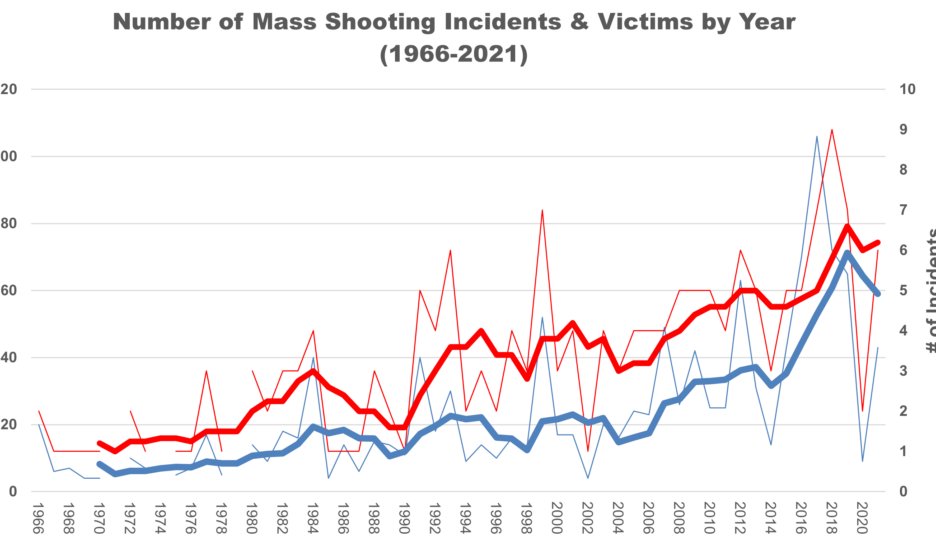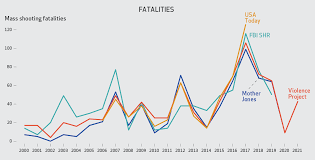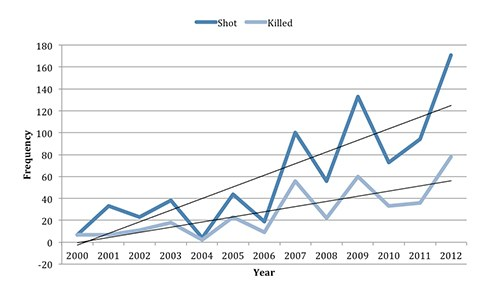Day: December 7, 2022
If you want to understand just how screwed up the Massachusetts Republican Party is under GOP state chairman Jim “Jones” Lyons, consider election night last month.
Geoff “DoorDash” Diehl, Lyons’ hapless candidate for governor, splurged on a “victory” party after getting less than 35% of the vote statewide.
According to his latest financial report, the sometime Uber driver’s campaign rented a hall at the Boston Harbor Hotel Nov. 8 for $28,065.60.
Think about that. The polls closed that evening at 8 p.m. The race was called – for Maura Healey – at 8:03.
So the GOP’s “victory party” lasted about 3 minutes. For more than $28,000, that works out to about $9,350 a minute, or more than $150 per second.
And now Jim “Jones” Lyons is running for another term as party chairman. During his stewardship, the GOP has yet to win a single statewide or Congressional fight.
On Lyons’ watch this year, an incumbent sheriff was defeated and the GOP couldn’t retain the offices of both sheriff and DA on Cape Cod, where Republican incumbents were retiring. Since Lyons won the job in 2019 (after his own failure to get re-elected as a state rep), the party has also lost about a dozen seats in the Legislature.
Complete, utter failure, across the board. And yet, Jim Jones Lyons could still be re-elected, because his future will be decided by state committee members who are even worse at electoral politics than the leader of their pathetic death cult.
The problem is, the disappearance of the Republican party affects everyone who works for a living here. Consider mail-in voting, which killed Republicans across the board. Beyond filing a frivolous suit against something that the Legislature had enacted into law, the state GOP did nothing about the new reality.
The teachers’ union, on the other hand, mobilized the hackerama to harvest ballots. With DoorDash Diehl at the top of the ticket, the payroll patriots didn’t have to worry about anything other than Question 1. That was the so-called millionaires’ tax, an 80% increase that will soon fall on everyone who has a real job.
Question 1 only passed 52-48, and probably could have been defeated had the state GOP mounted even a semi-serious campaign for… anything. But under Jim Jones Lyons – nothing.
Here’s how big a score Question 1 will be for the hackerama, summed up in a post-election Wall Street Journal headline:
“For a measly outlay of $23 million, unions secured $1 billion in new annual education funding.”
That’s one billion a year, every year, forever. Instead of working hard to stop this theft, Lyons was hiring a private eye to investigate a committee member who doesn’t support him. He’s also suing his own state party treasurer.
Pre-election, Lyons was obsessed with preparing a blizzard of subpoenas – to fellow Republicans. He was blanketing the State House with FOIA requests.
But Lyons’ Kool-Aid drinkers don’t care if he loses elections, because none of them could get elected dogcatcher either.
Consider one of his most loyal stooges, Amanda Orlando. She managed Diehl’s sad campaign. In a radio interview on WBSM last week, she blamed the disaster on DoorDash’s primary opponent, millionaire businessman Chris Doughty.
“It’s kind of funny that anybody thought a man who had never run for anything in his whole life who had nothing but money and his own ego to run on would be a great candidate.”
Hmmm. Amanda makes Doughty sound like… Donald Trump.
But back in 2016 Jim Jones Lyons never liked Trump either. He was with Ted Cruz. Lyons’ finance chairman, Rick Greene, was a John Kasich fanboy. I kid you not.
Greene, by the way, lives in Pepperell. They’ve had a GOP state rep for decades, but the prior solon got a hack job, so the seat was open.
The Lyons-Greene Kool Aid drinker lost the primary, so Greene’s parents wrote a public letter saying they were “unlikely” to vote for the GOP nominee, Andrew Shepherd. The old-timers said they might write in a candidate because “justifiable wins can take more than one election. Sometimes moral victories ought to happen in between.”
On election day, in Pepperell, more than 60 people took their advice and wrote in other candidates. Shepherd is in a recount, but right now he’s 17 votes behind the Democrat.
They threw away a Republican seat. That’s a moral victory to this crowd.
Amanda Orlando is the state committeewoman for a state Senate district in Essex County that used to have three GOP state reps. Two took hack jobs and Democrats won both elections. Two more seats gone.
A third Republican in the district, Lenny Mirra, is currently in a recount, just slightly ahead. When the recount started Monday, nobody from the Republican state committee showed up to support the incumbent.
Orlando’s counterpart is Richard Baker, age 63. He’s a loser for Congress (2008) and Governor’s Council twice (2016 and 2018).
It’s the same m.o. for most of Lyons’ wrinkly robots on the state committee. Patricia Saint Aubin, 64, crushed for state auditor in 2014. Now she fawns over Lyons almost as much as she dotes over her cat Lily, who she dresses up for Christmas.
Paul Roukaitus, age 67, of Winthrop. This year he was campaign manager of another of Lyons’ losers, Todd Taylor, in his campaign for state rep in Chelsea. Taylor got 28% of the vote.
Related Articles
-
Latest MassGOP chair contender seeks party ‘reset’ -
MassGOP leadership race a mirror to internal division -
MassGOP leadership race heats up, with some candidates vowing to forgo $100G salary to get job done -
Howie Carr: MassGOP shellacking proves $3,319 rent too high -
Jockeying begins for MassGOP head post
Richard Berrena, age 62, of Holyoke. He couldn’t even get elected to the Holyoke Charter Commission in 2009. Now he’s petrified that if he sticks with Lyons, someone with a clue might run against him.
You know, Berrena may be right. Think Nathan Bech, former West Springfield city councilor now on active military duty. Do you hear the footsteps, Richard?
Berrena’s female counterpart on the committee is Linda Vacon, another electoral dynamo. Last year she was re-elected to the Holyoke City Council – by 18 votes. On the state committee, her nickname is Landslide.
When she ran for state rep in 2012, Vacon got 21% of the vote, just a few more than the Green-Rainbow candidate. She loves Jim Lyons, because they have two things in common. They’re both 68 years old and they couldn’t get elected to the Legislature.
The election for chairman is next month, and of course Jim wants to go to the RNC meeting first – it’s in sunny southern California, perhaps the final junket of his dismal political career.
So many losses by so many losers, and yet, none of them ever spent $28,000 at a “victory” party the way Diehl did.
But still, it was probably a better use of his campaign funds than the $107,812.50 DoorDash squandered on Corey Lewandowski.

This article originally appeared on Haaretz, and was reprinted here with permission. Sign up here to get Haaretz’s free Daily Brief newsletter delivered to your inbox.
Democratic Sen. Raphael Warnock defeated Republican challenger Herschel Walker in Tuesday’s Georgia Senate runoff, giving the Democratic Party an outright 51-49 Senate majority.
Warnock, who will now serve a full six-year term in the Senate after winning the 2020 special election, won in a race where the Peach State’s local Jewish population proved consequential, given how disproportionately local Jews vote compared to the makeup of the general population.
Both candidates and national Jewish organizations invested significant manpower and financial resources into corralling Georgia’s 100,000 registered Jewish voters (36,000 of whom identify as Democrats and a further 50,000 as independents), highlighting the importance of the Black-Jewish alliance that helped propel Warnock and fellow Democrat Sen. Jon Ossoff to victory in 2020.
After averting defeat for one month thanks to Georgia’s electoral system, Walker now meets the fate of many Donald Trump-endorsed candidates deemed too extreme by the electorate. The race was among the most highly monitored during the midterms cycle due to controversies related to Walker’s personal life and the apparent lack of impact these had on his electoral prospects as the Republicans unsuccessfully sought to flip the Senate.
Kanye West’s antisemitic tirades were beginning to make national headlines prior to the midterms, and Walker’s critics used his failure to condemn the rapper as an attack point amid rising antisemitism. Walker’s continued embrace of Trump over the past month, despite the former president’s waning local popularity and his embrace of avowed antisemites West and Nick Fuentes, undoubtedly alienated even more voters.
Walker came under fire last year when a film producer due to host a pro-Walker fundraiser was revealed to have displayed an anti-vaccine symbol in the shape of a swastika on her Twitter profile. His campaign initially botched its condemnation, saying it was “clearly an anti-mandatory vaccination graphic,” while noting Walker “unequivocally opposes antisemitism and bigotry of all kinds.” The campaign would soon reverse course and cancel the fundraiser.
He also attracted criticism for invoking his devotion to Jesus during a candidate forum with local Republican Jewish voters, and Georgia Republicans circulated a fundraising email for Warnock centering around criticisms of George Soros – a frequent target of antisemitic tropes by Republican lawmakers. Warnock, meanwhile, played up his dedication to the Black-Jewish alliance as Republicans attempted to paint him as one of the most ardent anti-Israel Democrats in Congress.
“DMFI PAC is thrilled to congratulate Sen. Rev. Raphael Warnock on his re-election to a full term in the U.S. Senate. Voters in Georgia turned decidedly against the politics of division put forth by former President Trump’s handpicked candidate — whose dishonesty and inexperience made a mockery of the Republican Party — and instead chose in Sen. Warnock a man of conscience and conviction, who has consistently delivered on his commitments to his constituents, to the Biden-Harris agenda, and to the U.S.-Israel relationship,” DMFI PAC Chair Mark Mellman said.
The Jewish-Democratic establishment came out in full force in hopes of bolstering Warnock, while leading Republican Jews maintained support for Walker until the very end.
The post Raphael Warnock, buoyed by Jewish vote, defeats Herschel Walker in Georgia Senate runoff appeared first on The Forward.
DOHA, Qatar (AP) — Switzerland exited the World Cup at the round of 16 stage, just as it usually does in the modern era.
A 6-1 rout by Portugal on Tuesday left little space for feeling that progress was made, even if the squad was hit by a bout of sickness in Qatar.
Switzerland’s quest to win a first World Cup knockout game since 1954 will have to wait.
EXPECTATIONS VS. PERFORMANCE
There are nations of similar soccer history and a bigger population who would be happy to trade places with Switzerland in the European pecking order.
Still, this streak of round of 16 losses starting at the 2014 World Cup gets a little harder each time for fans to accept.
Under different coaches, there was a tough 1-0 extra-time loss to Argentina eight years ago, a strangely tame 1-0 loss to Sweden last time, now a humiliation against a Portugal team made more dynamic by leaving Cristiano Ronaldo on the bench.
Swiss fans were fueled with hope after eliminating world champion France in the round of 16 at the European Championship last year.
This was a squad that knew how to navigate its path through a tournament — and the group stage in Qatar offered more evidence.
Switzerland advanced from the group stage with an efficient 1-0 win over Cameroon, a late 1-0 loss to a standout Brazil team, and a decisive 3-2 win over Serbia in a game loaded with emotional and physical stress.
On Tuesday, the Swiss did not come close to maintaining their level, not helped by a bout of colds in the camp.
Then there were the tactics of coach Murat Yakin: Switching a defensive line of four to three in the back, which was clinically exploited by Portugal’s free-flowing playmakers.
“These were his choices, we have to accept them,” said playmaker Xherdan Shaqiri, whose anguished facial expressions were clear when the game was slipping away before half time at Lusail Stadium.
WHO’S OUT?
None of this squad need head for international retirement.
The core trio of goalkeeper Yann Sommer, midfielder and captain Granit Xhaka and playmaker Shaqiri are in their early 30s and have much to offer as team leaders.
Coach Yakin has been in the job for just 16 months and has a contract through Euro 2024.
A former center back for the national team, his instincts tend toward caution. Certainly more than his predecessor Vladimir Petkovic who oversaw that cavalier win over France last year, on penalties after a 3-3 draw.
However, Yakin’s tactical choice for his biggest test is being second-guessed at home.
WHO’S NEXT?
A veteran of five major tournaments aged just 25, forward Breel Embolo emerged as a stronger force leading the attack. He scored two key goals and did not shirk a physical duel with Rúben Dias that the Portugal defender pushed to the limit of the rules.
Noah Okafor was used as an impact substitute in Qatar and the speedy Salzburg forward will surely improve for Euro 2024 when he will be 24.
Aged between 25 and 27 and each approaching 50 appearances, center defenders Manuel Akanji and Nico Elvedi, plus midfielder Denis Zakaria and Djibril Sow should all be entering prime years.
WHAT’S NEXT?
The Swiss are the clear class act in a Euro 2024 qualifying group with Israel, Romania, Kosovo, Belarus, Andorra. The top two in the standings next November advance direct to the tournament in Germany.
With 16 qualifiers from Europe instead of 13 at the expanded 2026 World Cup in North America, Switzerland should have a good chance of securing a spot to that tournament.
___
AP World Cup coverage: https://apnews.com/hub/world-cup and https://twitter.com/AP_Sports
Searches on Chinese travel sites surged and social media platforms were flooded with delight and relief on Wednesday as the public cheered the biggest loosening of some of the world’s strictest COVID policies.
Travel platforms from Trip.com to Qunar said searches for air tickets to cities such as the tourist spots of Sanya and Harbin jumped as much as seven times after news of the looser rules was announced, with many people looking to travel around the Lunar New Year holiday in January.
China’s relaxation of its rules includes allowing infected people with mild or no symptoms to quarantine at home and dropping testing for people travelling domestically, marking an apparent end to the hugely unpopular zero-COVID strategy.
The policy has kept the number of infections in China extremely low by global standards but also choked its economy and had a devastating impact on the lives of many people.
Frustration with the rules boiled over into widespread protests late last month.
Wednesday’s announcement quickly soared to the most viewed topic on China’s Weibo platform, with many people “finally” embracing a return to normal.
“The epidemic fight has gone on for three years, this is a history-making day,” one Weibo-user said comment.
Dozens of people also flocked to the Weibo account of Li Wenliang, a doctor in the Chinese city of Wuhan, where the virus first emerged, who died in 2020 after sounding an early alarm about COVID-19 and whose last post has been an online haven for those looking to vent about personal woes and public policies.
“Doctor, we’ve made it through, we’re going to be free,”
wrote one user. “Daylight is here,” wrote another.
The news was also welcomed by foreign business groups, many of which had become increasingly outspoken about the damage the zero-COVID policy was having on China’s economy and the operations of their companies.
“Timely implementation will help stabilise China’s economy and get life back to normal,” the European Chamber of Commerce in China said of the 10 measures announced on Wednesday.
It urged that a clearly defined roadmap be provided to businesses and local governments.
It also urged China to roll out mRNA vaccines for domestic use as part of a vaccination drive with the elderly a priority.
The American Chamber of Commerce in China said it viewed any policy that pointed to opening up as positive, adding that the business environment needed to return to a level of predictability so companies could resume normal operations.
“Today’s measures focused on the domestic environment; however, we would also like to see further relaxation of inbound travel restrictions, continuing the progress that has been made on that front earlier this year,” Colm Rafferty, chairman of AmCham China, said in a statement.
Still, there was some concern on Chinese social media about whether the opening could unleash a wave of infections. Many people have been rushing to stock up on home testing kits as well as fever and cough medication.
Others wondered why it had taken so long, given that most of the world has lifted curbs and opted to live with the virus, even as it spread.
“A year ago the rest of the world did this, so why on earth didn’t we do this earlier?” one user wrote on WeChat. “The people are so exhausted,” wrote another.
Related Galleries:
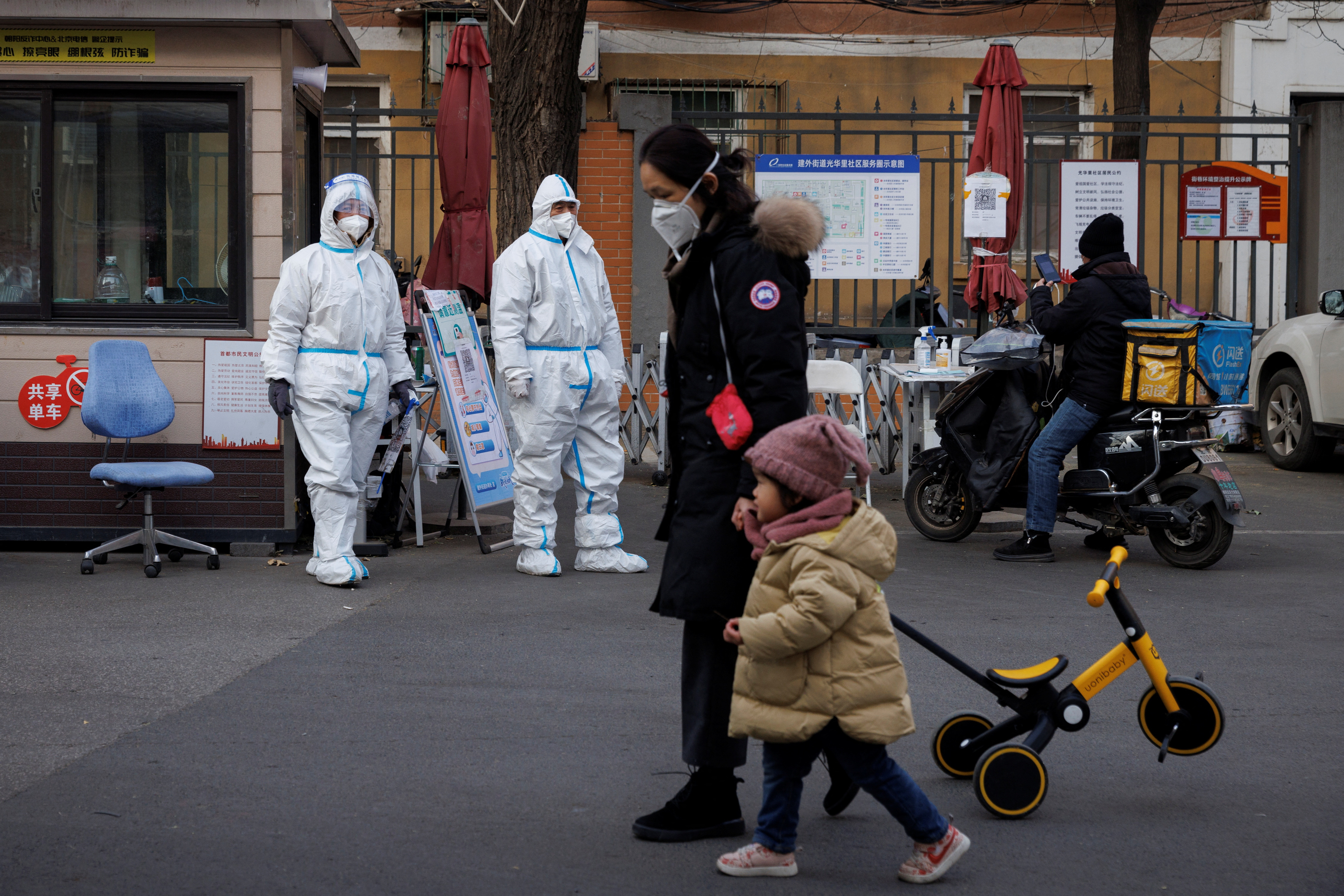
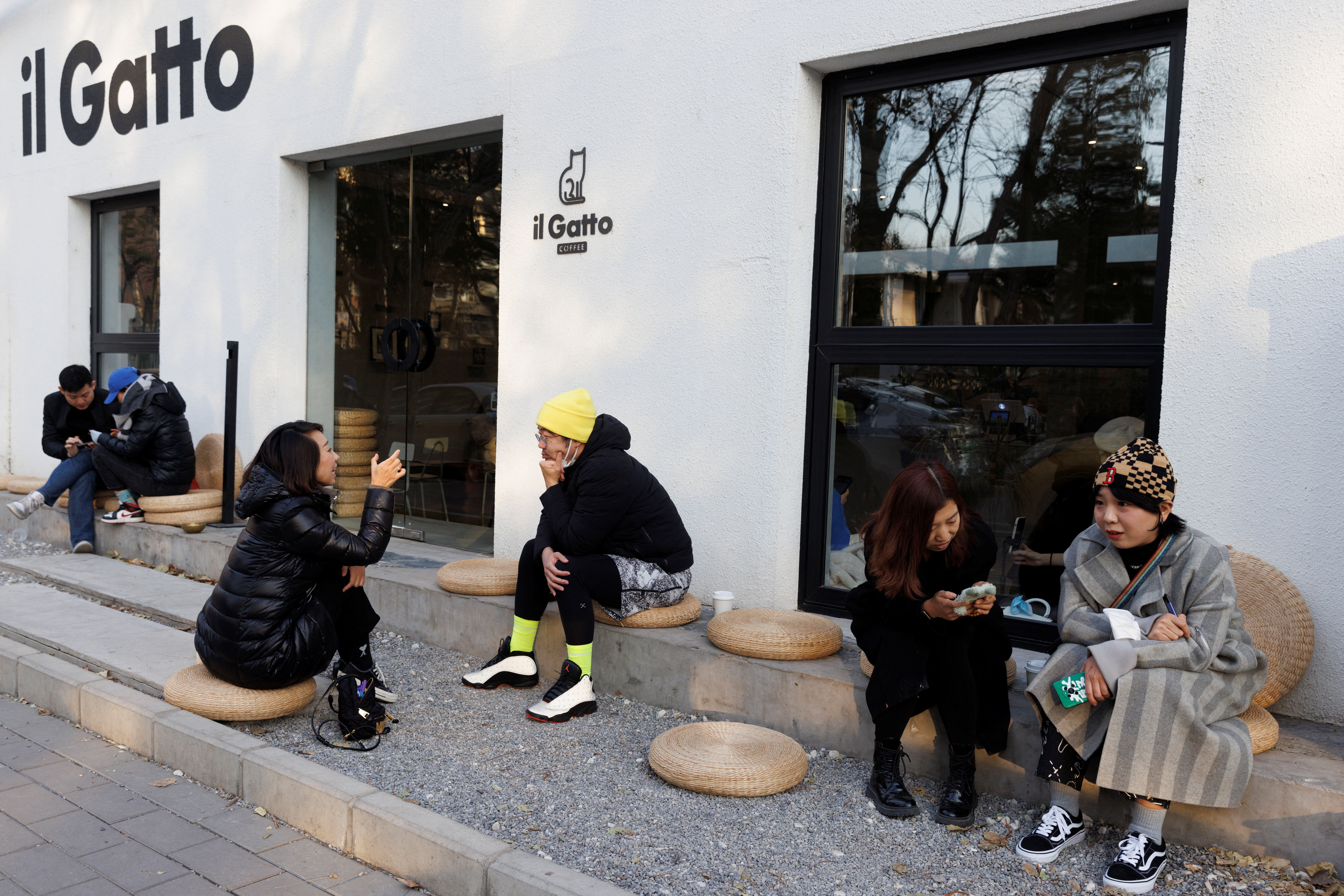
China announced on Wednesday the most sweeping changes to its tough anti-COVID regime since the pandemic began three years ago, loosening rules that curbed the spread of the virus but had hobbled the world’s second largest economy and sparked protests.
The relaxation of rules, which include allowing infected people with mild or no symptoms to quarantine at home and dropping testing for people travelling within the country, are the strongest sign yet that Beijing is preparing its people to live with the disease.
Many of the changes announced by the National Health Commission (NHC) reflected steps already taken in various cities and regions in recent days, following protests against COVID controls that were the biggest demonstration of public discontent since President Xi Jinping came to power in 2012.
Even still, citizens cheered the prospect of a shift that could see China slowly emerging back into a world three years after the virus erupted in the central city of Wuhan in late 2019.
Wednesday’s announcement quickly soared to the top most viewed topic on China’s Weibo platform, with many people hoping for a return to normality after a series of weeks-long lockdowns that have brought mental suffering to tens of millions.
“It’s time for our lives to return to normal, and for China to return to the world,” wrote one Weibo user.
Some investors also welcomed the shift that could reinvigorate China’s sagging economy and currency and bolster global growth.
“This change of policy is a big step forward,” said Zhiwei Zhang, chief economist at Pinpoint Asset Management. “I expect China will fully reopen its border no later than mid 2023.”
Foreign businesses in China also hope the changes could mark a shift to broader opening up and an easing of travel restrictions.
“We need the business environment here to return to a level of predictability whereby companies can return to normal operations,” Colm Rafferty, chairman of the American Chamber of Commerce in China, said in a statement.
But NHC spokesperson Mi Feng told a news conference that any changes to measures regarding travel would be “gradual”.
The policy change came after President Xi Jinping, who regards China’s relentless fight against COVID as one of his main achievements, chaired a meeting of the Communist Party’s Politburo on Tuesday.
Some analysts seized on a report on the meeting by official news agency Xinhua that lacked any mention of the “dynamic zero-COVID” policy, though it was unclear whether this was a signal of a fundamental change in stance.
Major cities across China, including Beijing and Shanghai, were gripped by protests last month, which started to peter out amid a heavy police presence and various restrictions being lifted in different parts of the country.
Officials have not linked any of the changes, made on Wednesday or earlier, to the protests.
But they have been softening their tone on the health risks of the virus – bringing China closer to what other countries have been saying for more than a year as they dropped restrictions, and shifted towards living with the virus.
The looser approach has set off a rush for cough and fever medicines as some residents, particularly the unvaccinated elderly, feel more vulnerable to a virus that has largely been kept in check by Beijing’s strict policy.
China’s current tally of 5,235 COVID-related deaths is a tiny fraction of its population of 1.4 billion, and extremely low by global standards.
“Please buy rationally, buy on demand, and do not blindly stock up,” the Beijing Municipal Food and Drug Administration was quoted as saying in the state-owned Beijing Evening News.
In Beijing’s upmarket Chaoyang district, home to most foreign embassies as well entertainment venues and corporate headquarters, shops were fast running out of some those drugs, residents said.
The surge in demand drove up share prices in medicine manufacturers including cough syrup producer Guizhou Bailing (002424.SZ), and Xinhua Pharmaceutical (000756.SZ), which makes 40% of all Ibuprofen sold in China.
China’s yuan has seen a recent resurgence against the dollar, buoyed by the prospects that government would relax its “zero-COVID” policy.
But the currency remains set for its worst year since China unified official and market exchange rates in 1994, as its economy has been battered by COVID curbs.
In further evidence of that, China’s exports and imports shrank at a much steeper-than-expected pace in November, data on Wednesday showed.
Related Galleries:
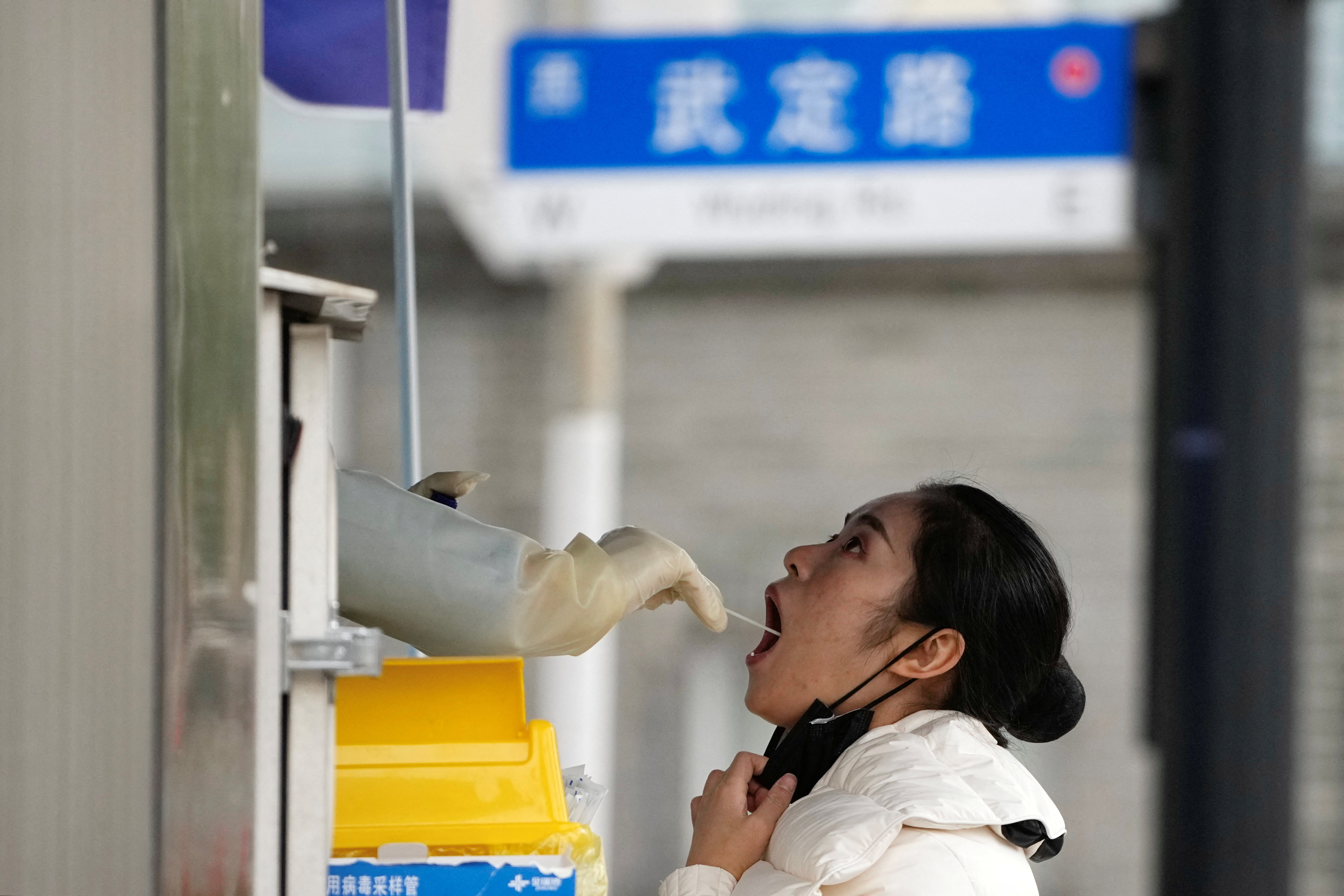
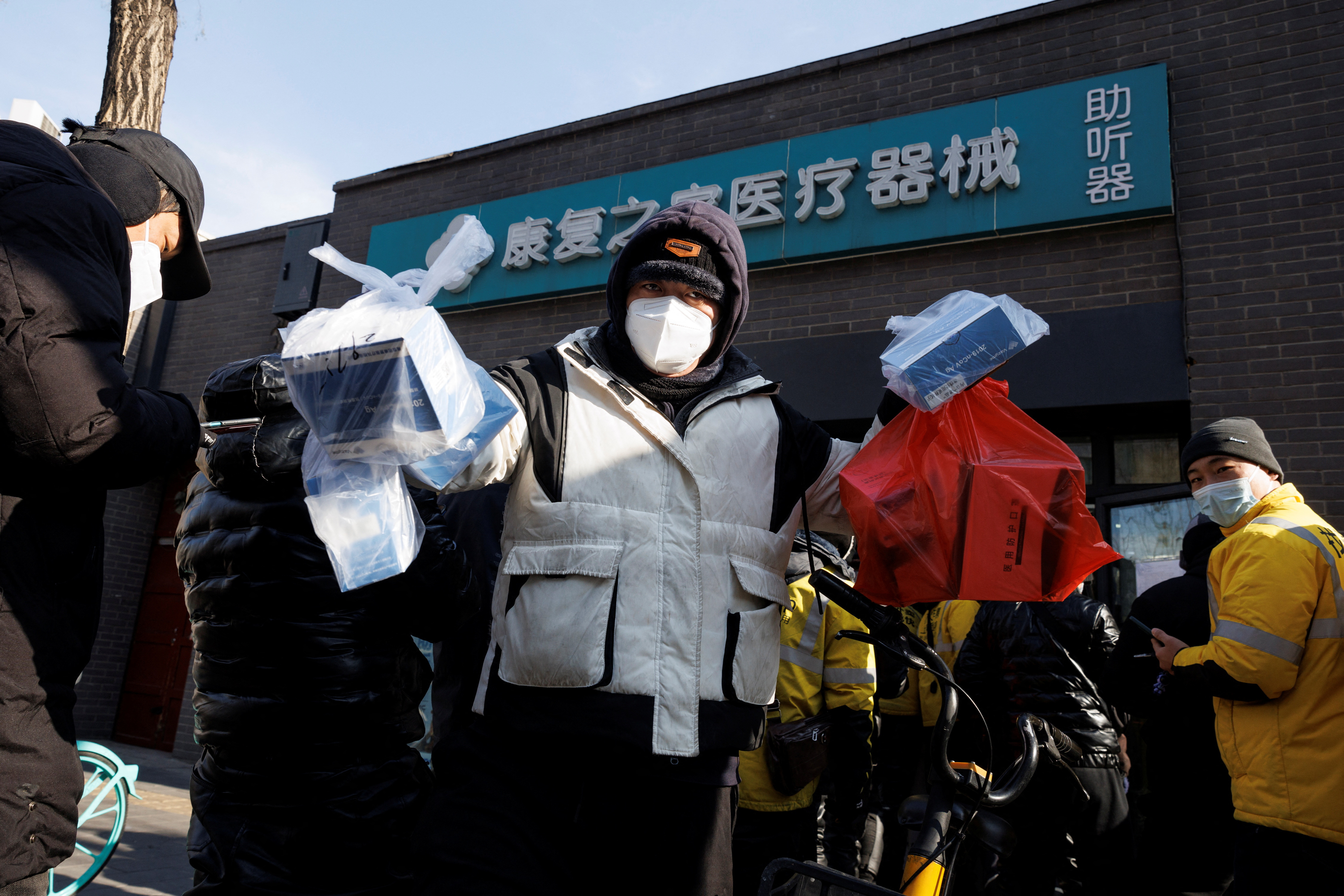
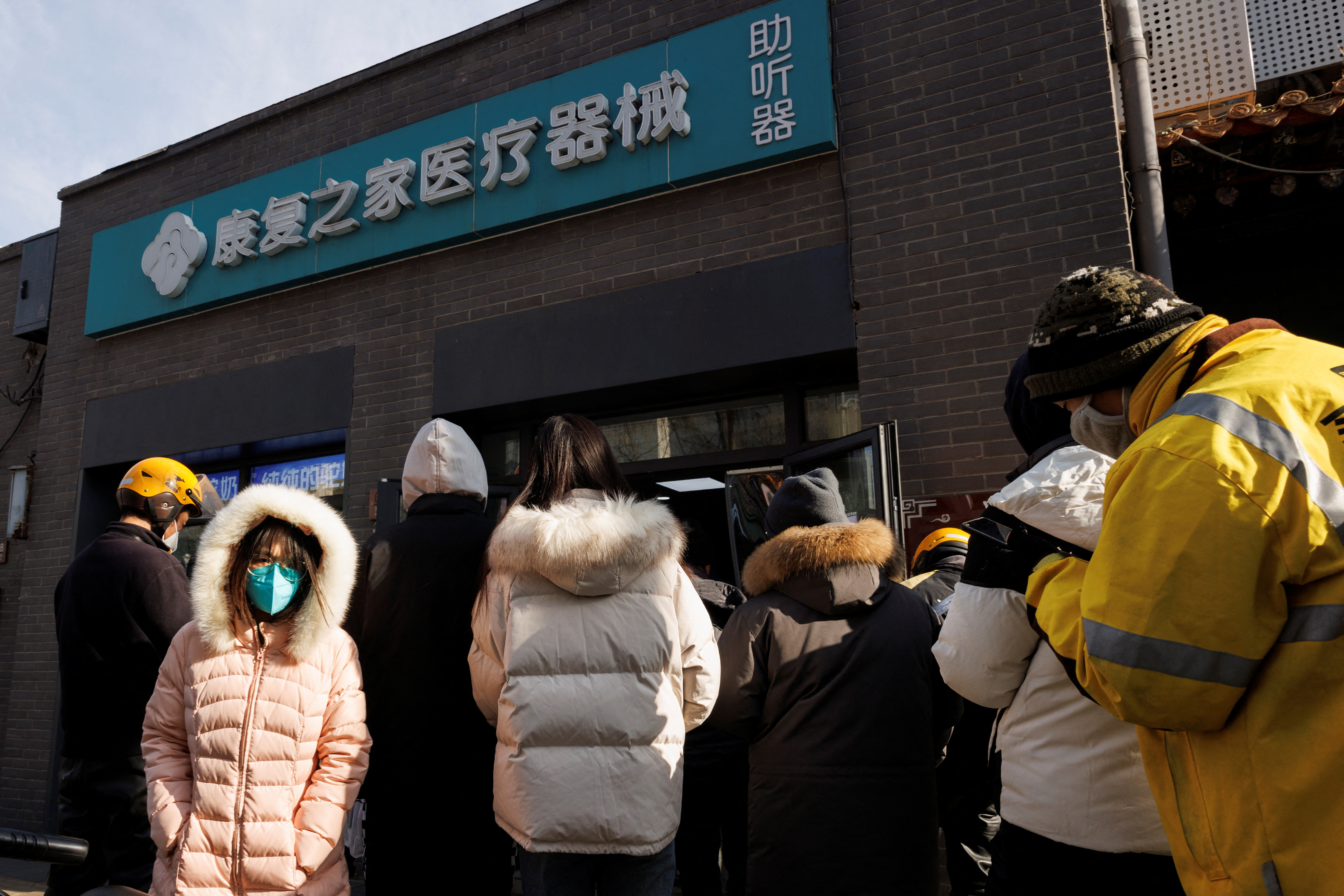
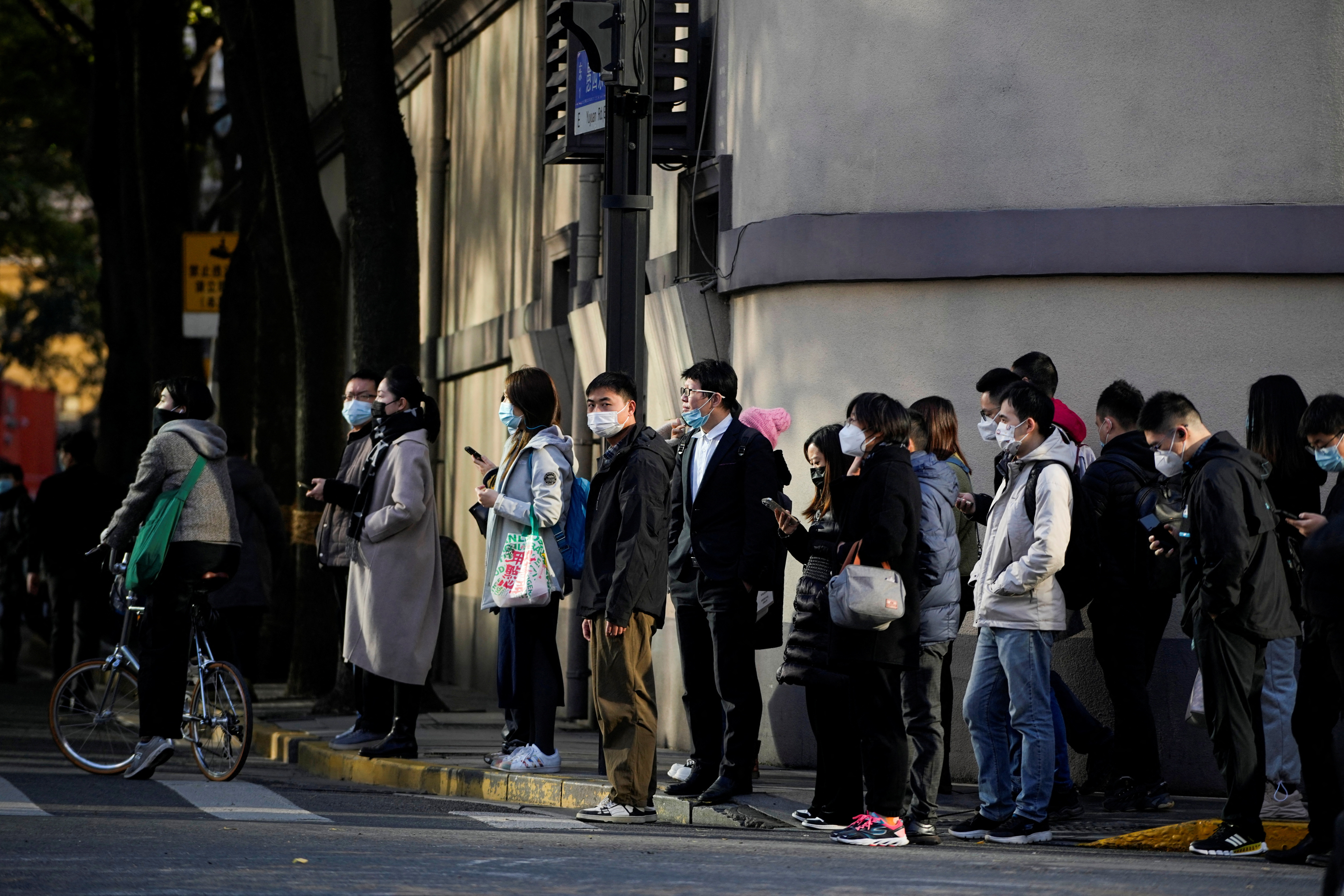
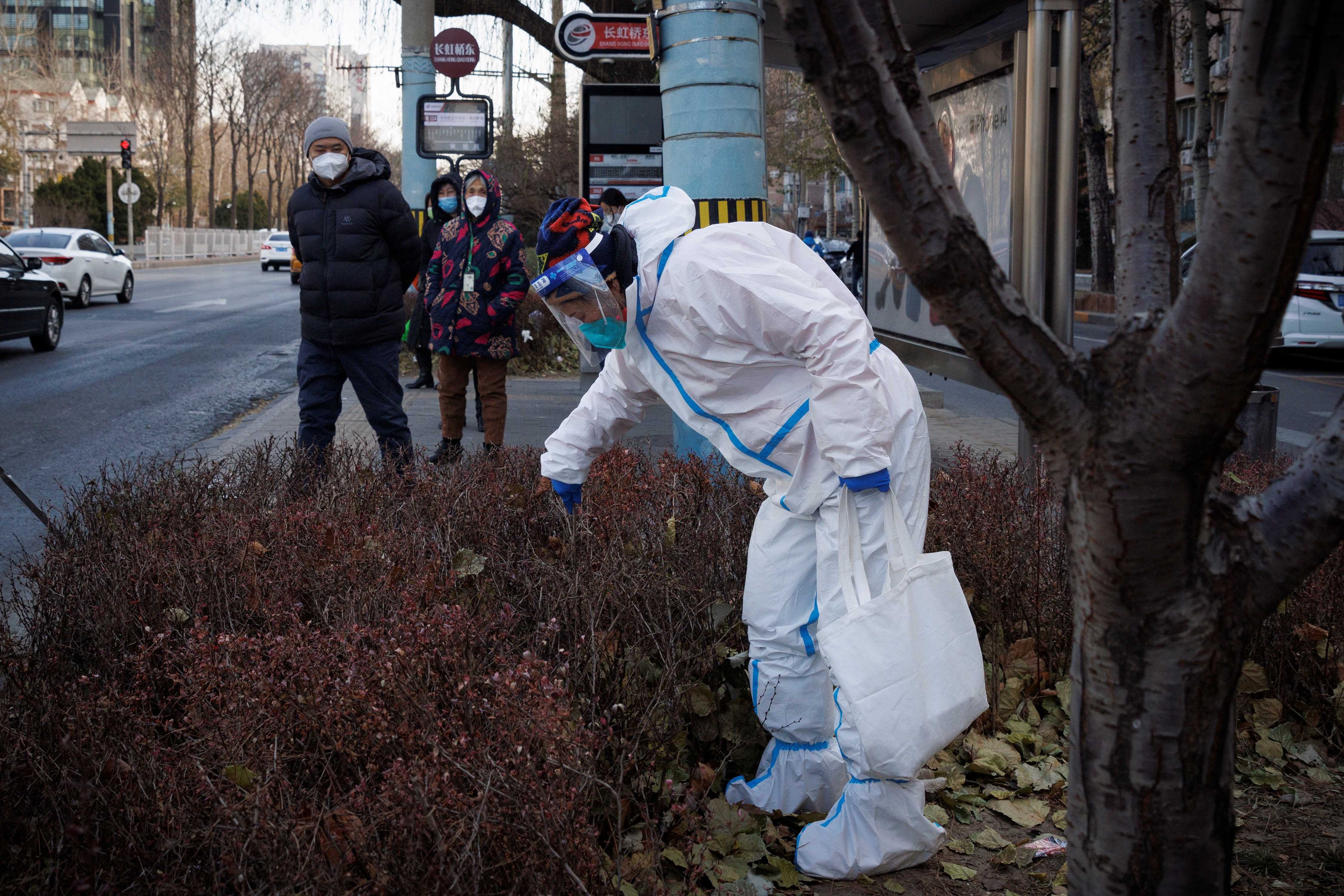
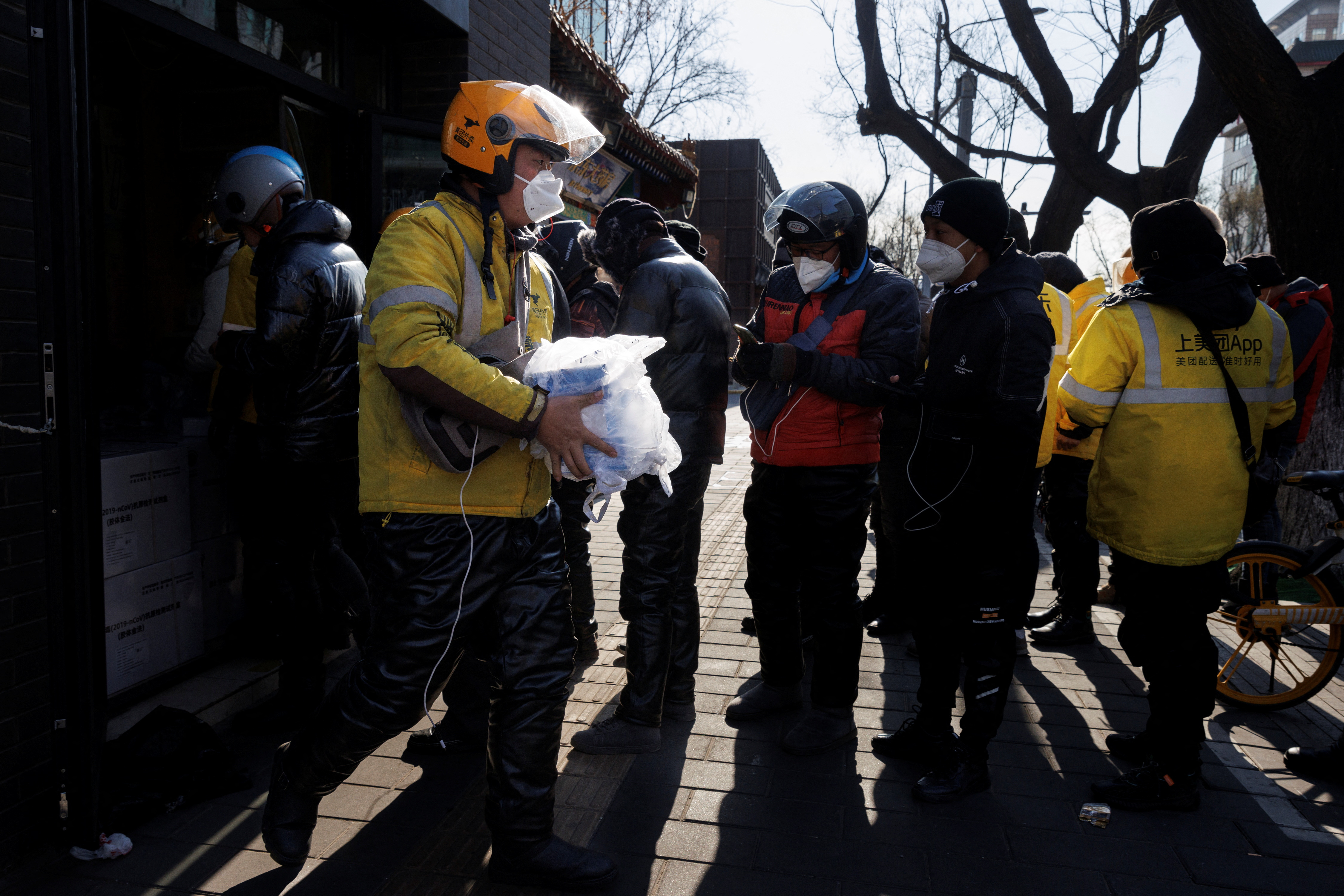

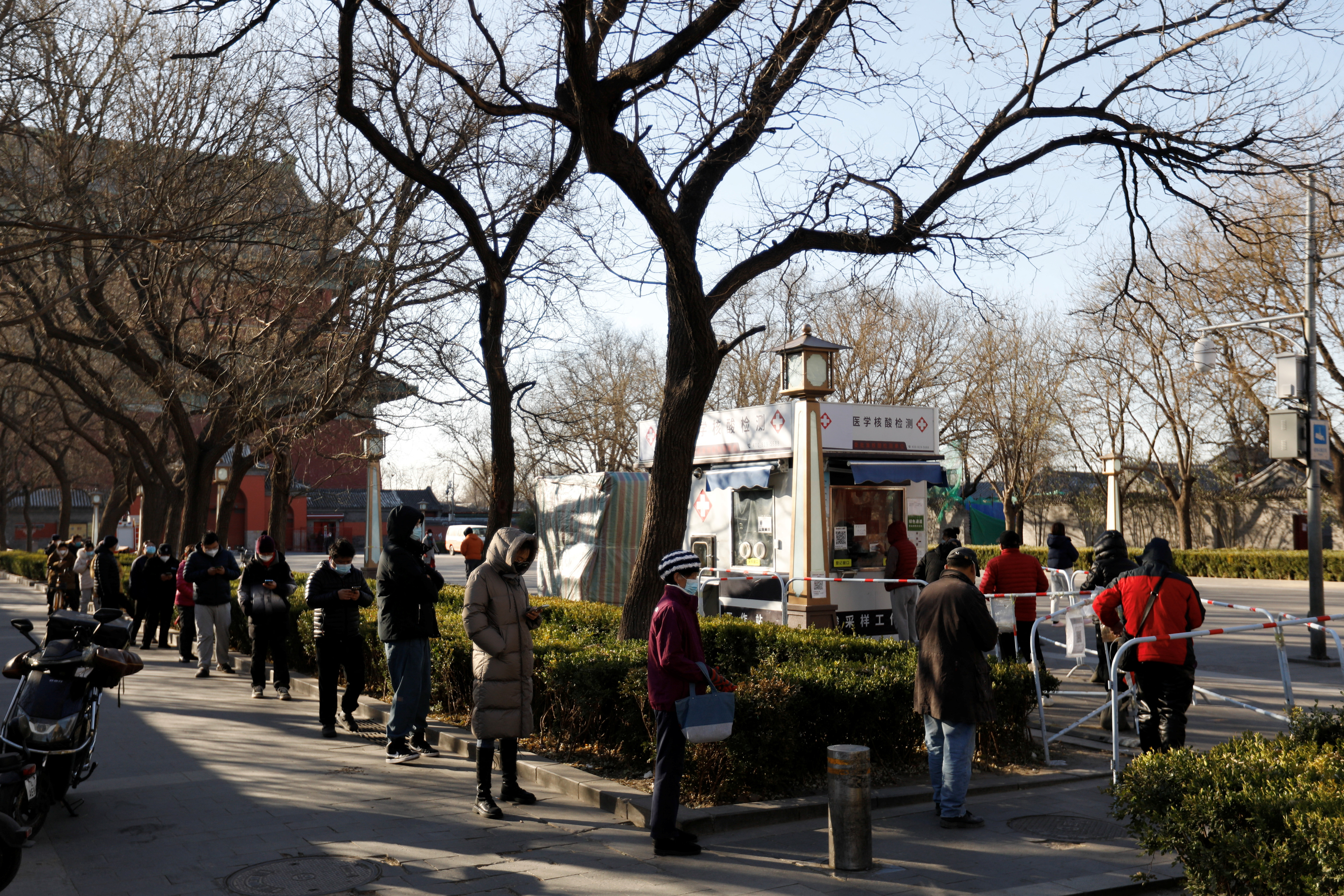
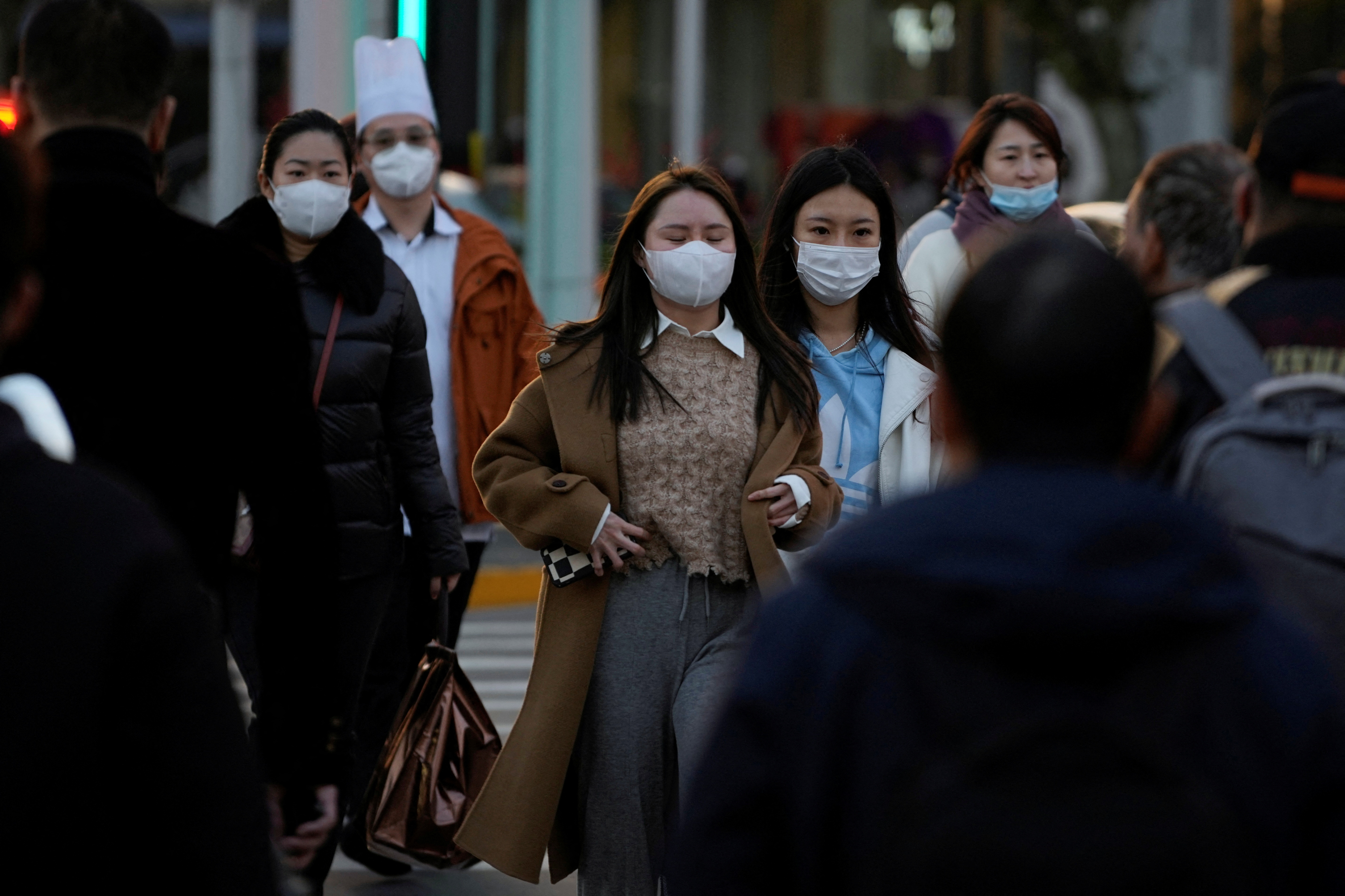
At least 150 ethnic Rohingya are stranded at sea off Thailand after their boat broke down, activists said on Wednesday, adding that several may have died and urging authorities to rescue the survivors.
Each year many Rohingya, members of a persecuted Muslim minority, risk their lives boarding rickety vessels to escape oppression and violence in Myanmar and squalor in Bangladesh refugee camps. Many attempt to reach Malaysia.
The number attempting the treacherous journey has surged following deteriorating conditions in the camps and last year’s military coup in Myanmar which brought back to power the army accused by the United Nations of carrying out a “genocidal” crackdown on Rohingya in 2017.
The vessel left Bangladesh in late November and began to leak when it was off the coast of Ranong, in southern Thailand, said Chris Lewa, director of rights group the Arakan Project, citing interviews with relatives of passengers.
“(They have) almost run out of food and water on the boat,” she said, adding that men were desperately trying to scoop water out of the vessel.
She said those on board said they had seen a Thai navy boat but it did not help.
A Thai navy officer told Reuters by phone the boat had not entered Thai waters and was currently in Indian terrority. The officer spoke on condition of anonymity because they were not authorized to speak to media.
The exact location of the vessel remained unclear.
Siyeed Alam, a Thailand-based Rohingya activist who also said he spoke to relatives of those on board, said some passengers had died. Reuters was not able to independently confirm this.
“Their condition is very bad… (they are) emaciated and if there is no help, they will die,” he said.
The UN refugee agency (UNHCR) on Friday said this year had seen a “dramatic increase” in the number of people attempting to cross the Andaman Sea between Myanmar and Bangladesh. At least 1,900 people had made the crossing, one of the world’s deadliest, six times more than in 2020.
At least 119 have died attempting the journey this year alone, the agency said.
A spokesperson for UNHCR in Thailand said the agency was “deeply concerned by the current situation aboard” the boat and was advocating that Thai authorities rescue them and help them disembark safely.
More than 730,000 Rohingya Muslims fled Myanmar in 2017 after a military crackdown that included mass killings and gang rape, and settled in sprawling makeshift camps in southern Bangladesh.
Myanmar’s military said soldiers were carrying out a legitimate campaign against insurgents who attacked police posts and denied widespread atrocities.
Did the Spetsnaz team drive across the country to perform their next assignments: shooting at the power substations in Moore county, close to Fort Bragg? Were the military servicemen targeted specifically? Isn’t it the same tactic as in Ukraine?
https://t.co/WhF9X6vhAR
–
Did the Spetsnaz “CONTROLLERS” GROUP (or Mob team) travel this route at the time of these attacks, one week apart? Is it possible to trace it down?
BREAKING: Club Q Suspect Formally Charged in Colorado Mass Shooting

Anderson Lee Aldrich stands accused of killing five people at the gay nightclub in Colorado Springs.
Gunman kills 5 at LGBTQ nightclub in Colorado Springs before patrons confront and stop him, police say
cnn.com/2022/11/20/us/…
The suspect used a long rifle in the shooting, and two firearms were found at the scene:
2 or 3 firearms all together?
Multiple shooters?
Active Shooter Events from 2000 to 2012
–

Ilustração: The Intercept Brasil; Animações: Danilo Cheng
Não sei se você tem acompanhando, mas um desastre está ocorrendo em câmera lenta diante de nossos olhos. As redações do Brasil estão sendo esvaziadas porque está cada vez mais difícil sustentar o jornalismo, mesmo para as grandes empresas. Isso significa que os brasileiros como você, que se importam com uma sociedade mais justa e mais honesta, estão sendo cada vez mais prejudicados.
A CNN Brasil foi a última redação a efetuar um “passaralho”, demitindo mais de 120 funcionários na semana passada. Inúmeras redações estão apertando os cintos recentemente apesar do fato de que o jornalismo é mais necessário do que nunca. Até o Intercept quase fechou permanentemente apenas algumas semanas atrás (mas foi salvo pelos nossos leitores!).
Pense quantos escândalos ultrajantes não teriam sido revelados nos últimos anos sem o trabalho incansável de repórteres investigativos. Será que os resultados das eleições de outubro teriam sido diferentes sem o jornalismo? Eu tenho certeza de que sim. Mas a turbulência não acabou.
Não podemos deixar esse encolhimento da imprensa continuar em 2023, um ano que definirá o nosso futuro. O Brasil precisa de um jornalismo dedicado e independente para lutar em nome do cidadão comum.
E agora você tem uma oportunidade incrível de garantir que o jornalismo de que você precisa para manter sua água limpa, sua comida segura, seus impostos bem gastos e empresários bilionários sob controle: apenas no mês de dezembro, cada nova contribuição ao Intercept vai valer o triplo! Não é espetacular?
É isso mesmo, se você contribuir com R$ 50 para o Intercept, nós vamos receber R$ 150! Esta oferta incrível é graças a um leitor generoso que acredita na importância do trabalho do Intercept e nos procurou querendo encorajar outras pessoas a se tornarem apoiadores também. Para cada real que você envia este mês, esse apoiador vai casar mais 2 reais.
Melhor ainda: para membros mensais, a oferta se aplica aos três primeiros meses de contribuições. Então, vem ajudar a gente agora!
Hoje, lançamos a campanha de fim do ano mais inusitada e importante de todos os tempos. Será nosso primeiro ano sem o apoio da redação dos Estados Unidos e é muito importante que cheguemos a janeiro com um plano sólido para garantir nosso futuro. Aproveite essa oportunidade e ajude-nos a turbinar nossa redação em 2023.
Temos menos de um mês para alcançar a meta de 1.000 novos apoiadores mensais.
E por que apoiadores recorrentes? É simples: são os apoiadores mensais que nos permitem planejar o futuro do TIB e contratar jornalistas.
São eles que nos dão a certeza de que poderemos passar seis meses investigando uma mineradora ou um ano produzindo uma pauta sobre tráfico de armas e milícias sem que lá na frente nos faltem recursos.
Mais jornalistas executando sua profissão com responsabilidade significa mais revelações de fraude e abuso, menos oportunidades para os maus atores e mais proteção para os corajosos guerreiros da verdade que são nossas fontes que arriscam suas vidas para lutar pelo que é certo. A situação no Brasil segue grave; temos que nos juntar na luta.
Basta clicar na imagem abaixo:
The post As redações estão sendo esvaziadas. Precisamos de apoiadores para seguir fortes. appeared first on The Intercept.

Sixteen persons were being killed in a street incident concerning the towns of Chystiakove (Torez) and Shakhtarsk in the briefly occupied territory of Donetsk location.
“A truck transporting servicemen collided with a minibus on Shakhtarsk-Torez highway. Sixteen individuals were killed, 3 wounded have been hospitalized,” Ukrinform studies with reference to Kommersant.
A truck driver is amongst all those killed.
The bring about of the accident has not yet been recognized.
Read also: A few civilians injured in Donetsk region in earlier working day
As reported, the Russian troops wounded 3 residents in Donetsk region yesterday.
ol
The post Sixteen killed in military vehicle accident in temporarily occupied Donetsk region appeared first on Ukraine Intelligence.





